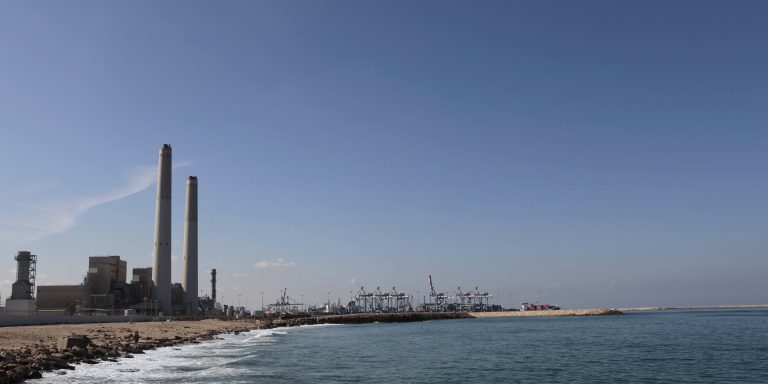INTELBRIEF
February 23, 2018
TSC IntelBrief: Rivalries and Mediterranean Natural Gas

- U.S. brokered talks between Israel and Lebanon over a contested section of the Mediterranean collapsed on February 21.
- Israel is demanding that Lebanon share part of ‘Block 9’ and objects to a recent tender put out by Lebanon for oil and gas exploration in that sector.
- On February 19, Israel announced a decade-long deal to supply $15 billion in natural gas to Egypt.
- The economic promise of massive natural gas fields in the Mediterranean is blunted by serious regional rivalries.
On February 19, Israel announced that it had reached a deal that would send $15 billion in natural gas from its Tamar and Leviathan gas fields to the Egyptian company Dolphinus Holdings. Israeli Minister of Energy, Yuval Steinitz, called it the largest export deal between the two countries since they signed the 1979 peace treaty. Once a natural gas exporter—even selling gas to Israel—Egypt is now an importer of natural gas, though the Zohr field could help reduce imports once it is operational. Yet, a mixture of internal politics and regional rivalries threatens to blunt the economic prospects of natural gas not just for Egypt, but for Israel, Lebanon, and Cyprus.
The tensions between Israel and Lebanon over contested areas of their maritime boundaries have risen since Lebanon put out a tender calling for the exploration of ‘Blocks 4 and 9’ that are off the Lebanese coast. An international consortium of natural gas firms—France’s Total, Russia’s Novatek, and Italy’s Eni—signed two agreements to explore Blocks 4 and 9, with a statement that is recognizes the dispute between Lebanon and Israel but that its work in Block 9 will not interfere with any future work to the south. After several rounds of talks with each side, Acting U.S. Assistant Secretary of State for Near Eastern Affairs David Satterfield tried to arrange face-to-face talks between the two countries; this effort failed on February 21, with neither side willing to meet.
Hizbollah added to the tension when its leader, Hassan Nasrallah, stated that the natural gas issue was one of the most important facing Lebanon and warned the government against backing down to Tel Aviv. Nasrallah also threatened attacks on Israeli’s offshore natural gas infrastructure, saying that if the military command decided to target those facilities, ‘I promise they would stop working within hours.’ Lebanon’s need to more fully exploit its natural gas reserves, along with tensions with Israel, further complicate what is already a massively expensive and technical challenge. The issue will not be settled easily and is likely to grow more contentious.
Another issue hindering natural gas exploration is one of pipelines and routes. Israel produces far more gas than it can use or even move to Egypt—which does have two shuttered facilities to liquefy natural gas. A pipeline that runs north under the Mediterranean to Europe, where the European Union is eager to get out from under the natural gas clutches of Russia, is both extremely expensive and contentious. Cyprus has significant gas reserves in its Aphrodite field, yet Turkey outright rejects Cyprus’ claims, saying the gas must be split with the Turkish Cypriots. On February 22, Turkish Energy Minister Berak Albayrak said his country would not allow ‘unilateral’ gas exploration off the coast of Cyprus; Ankara has sent warships to block the rigs for the last several weeks, a sign of just how seriously it takes the issue. As with the Israeli-Lebanese impasse, the issue of natural gas rights will continue to inflame tensions between Turkey and Cyprus, with little cause of optimism in the foreseeable future of an amicable agreement.
.
For tailored research and analysis, please contact: info@thesoufancenter.org
[video width="960" height="540" mp4="https://thesoufancenter.org/wp-content/uploads/2018/02/Final-Edit-1-137.mp4" poster="https://thesoufancenter.org/wp-content/uploads/2018/02/AP_964786336311.jpg"][/video]